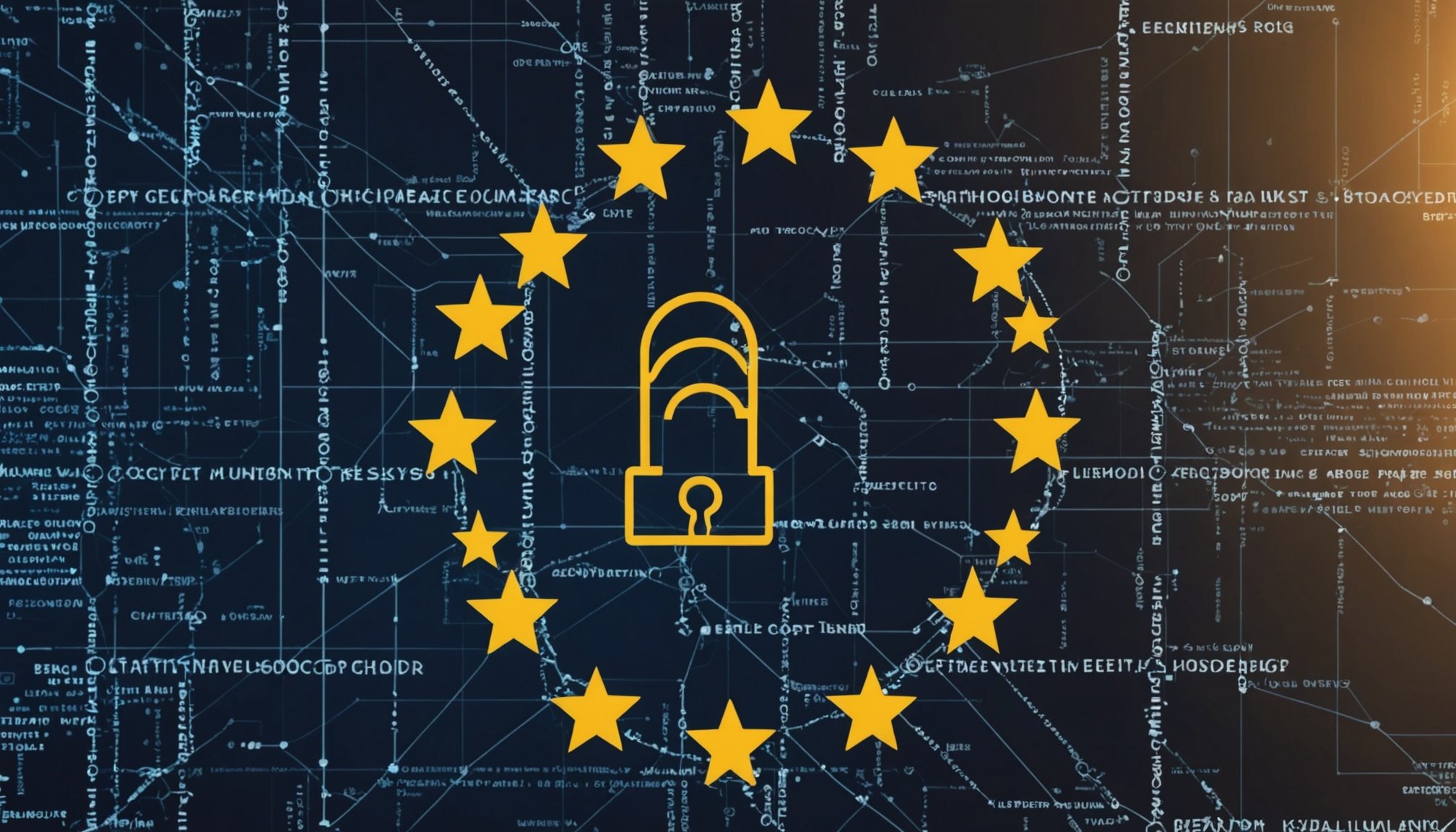Overview of GDPR Compliance for UK Enterprises
Navigating GDPR compliance is essential for UK enterprises as it ensures both data security and legal adherence. The General Data Protection Regulation (GDPR) is a robust framework set by the EU, which was retained in UK law post-Brexit, underscoring its significance. Unlike previous regulations, GDPR mandates strict data protection measures, affecting how businesses handle personal data.
Key Principles of GDPR
There are fundamental principles your business must embody to achieve full GDPR compliance:
Also to see : Empowering energy solutions with vallourec smart tubulars
- Lawfulness, Fairness, and Transparency: Data should be processed legally and in a transparent manner to uphold fairness for the individual.
- Purpose Limitation: Clearly specify why data is collected and ensure it is used solely for those purposes.
- Data Minimisation: Collect only the necessary data, avoiding excess.
- Accuracy: Maintain and update data to ensure accuracy.
- Storage Limitation: Hold personal data no longer than necessary.
- Integrity and Confidentiality: Secure personal data against unauthorized access or processing.
Consequences of Non-Compliance
Failing to comply can lead to severe penalties, including hefty fines, damaged reputations, and potential legal battles. Organizations must implement stringent measures and continually monitor their practices to stay aligned with these regulations. Non-compliance isn’t merely an oversight—it’s a risk that UK enterprises can’t afford.
Strategies for Achieving GDPR Compliance
Successfully navigating GDPR compliance requires a robust approach, and establishing a clear data governance framework is crucial. Businesses should start by defining roles and responsibilities concerning data management, ensuring everyone understands their part in safeguarding sensitive information. A well-articulated framework serves as the backbone of a company’s overall GDPR compliance strategies, providing a systematic approach to managing and protecting data.
Also to discover : Key components for designing a successful mobile banking application in the uk
A crucial aspect of these strategies is conducting comprehensive data audits and assessments. Regular audits help identify what data is collected, how it is processed, and who has access to it. By evaluating the data lifecycle from collection to disposal, companies can pinpoint vulnerabilities and areas of non-compliance. This proactive approach helps maintain the integrity and security of personal data, thus enhancing GDPR best practices.
Another pivotal element is implementing privacy by design and default principles. This means considering privacy at every stage of a product’s or process’s development and ensuring that privacy settings are set to the highest level by default. Emphasizing these principles ensures that companies build privacy into their systems, reducing the risk of data breaches and non-compliance. Embracing these strategies fosters a culture of respect for data privacy and aligns organisational practices with GDPR requirements.
Key Areas of Focus for Compliance
Understanding the key focus areas for compliance is essential for any organisation. It ensures alignment with regulations and safeguards data subject rights, aiding in avoiding legal pitfalls.
Data Subject Rights
The General Data Protection Regulation (GDPR) provides several individual rights. These rights aim to give individuals control over their personal data. Organisations need clear processes for responding to data subject requests, such as access, rectification, erasure, and data portability. A focus on transparency and communication can enhance trust and compliance. Efficient systems for managing requests help maintain timely and consistent responses, crucial for adhering to GDPR time frames.
Documentation and Record Keeping
Compliance involves rigorous documentation requirements. Essential documents include records of processing activities. The role of Data Protection Impact Assessments (DPIAs) is significant in managing risks associated with data processing. Best practices for maintaining records include regular updates and clear categorisation, ensuring they are easily accessible for audit and review.
Staff Training and Awareness
Effective compliance requires building a culture of awareness. Employee training on data protection is paramount. Resources like workshops and online courses can develop a comprehensive training program. Understanding data subject rights is not only for compliance but forms the basis for ethical data management.
Common Pitfalls in GDPR Compliance
Navigating GDPR compliance pitfalls can be daunting, with several challenges often underestimated. Among the frequently misunderstood aspects are data processing agreements. Organisations sometimes overlook the need to clearly define these agreements, leading to misunderstandings about their role in personal data protection. The complexity lies in understanding the legal obligations to ensure that third-party processors comply with GDPR standards.
Furthermore, missteps in appointing Data Protection Officers (DPOs) are common. Companies often underestimate the significance of this role and may not fully understand the DPO’s responsibilities. A DPO must be well-versed in GDPR requirements and act as the cornerstone for maintaining legal compliance. Assigning this role without adequate authority or resources can undermine compliance efforts.
Lastly, inadequate risk assessments present significant risks. Proper risk assessment is imperative to identify potential vulnerabilities in data handling processes. Organisations might fail to conduct these assessments regularly, leading to overlooked threats. A robust risk assessment protocol includes frequent evaluations and updates to address new challenges, ensuring ongoing protection.
Addressing these GDPR challenges requires careful planning and execution. By clarifying obligations, empowering DPOs, and conducting thorough assessments, organisations can mitigate these pitfalls and safeguard data effectively.
Success Stories of Effective GDPR Compliance
While GDPR compliance can be challenging, some UK businesses have navigated it successfully, setting examples for others. By examining GDPR success stories, companies can glean insights into effective strategies and key takeaways.
Take, for instance, a major financial institution that implemented comprehensive data auditing to ensure transparency and accountability. By cataloguing and analysing all data processes, they addressed compliance gaps efficiently—a strategy aspiring businesses can replicate.
Another business, a UK-based tech company, faced hurdles in aligning their software to GDPR mandates. They adopted a phased approach, focusing initially on high-risk areas. This targeted strategy not only resulted in quicker compliance but also in increased customer trust.
Moreover, an e-commerce enterprise found success by overhauling its privacy policy, making it more comprehensible and transparent. This not only met legal standards but also enhanced customer relations—a dual benefit emerging from solid compliance efforts.
Lessons learned from these organizations include the importance of comprehensive data audits, prioritizing high-risk processes, and enhancing transparency. Implementing effective strategies such as these can lead to successful GDPR adherence, boosting both legal alignment and customer rapport. Businesses aiming to improve their GDPR stance can take cues from these strategies to forge their own paths to compliance.
Tools and Resources for Compliance
Navigating the labyrinth of regulatory compliance can be daunting, but the right compliance tools can ease the journey. These digital tools are designed to automate and simplify the processes involved in meeting data protection standards like GDPR. Many organizations benefit from data protection software which offers features such as access controls, encryption, and compliance reporting to safeguard personal data and fulfill legal obligations.
For those looking to expand their knowledge continually, a range of GDPR resources is available. These include webinars, white papers, and online courses facilitated by experts in the field. Staying updated with global data protection laws not only helps in maintaining compliance but also empowers stakeholders in making informed decisions.
Additionally, engaging with a community of compliance experts can offer invaluable insights. Networking opportunities abound at seminars, workshops, and online forums, making it possible to share experiences and strategies. This collaborative approach fosters an environment of support and innovation among compliance professionals, enriching one’s understanding and practice within the domain.
Strengthening your organization’s compliance framework involves not only selecting appropriate technologies but also cultivating ongoing education and professional relationships.











